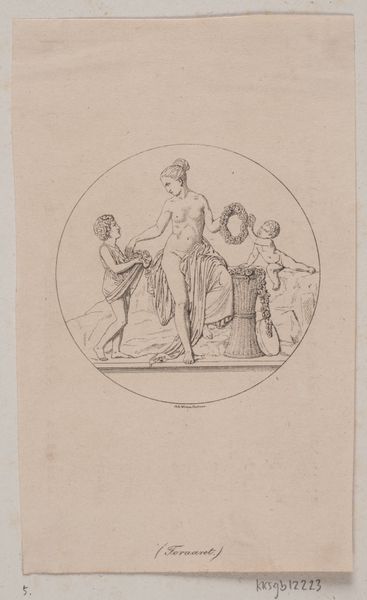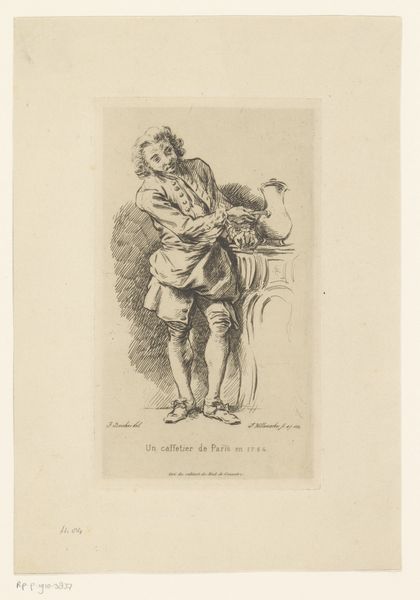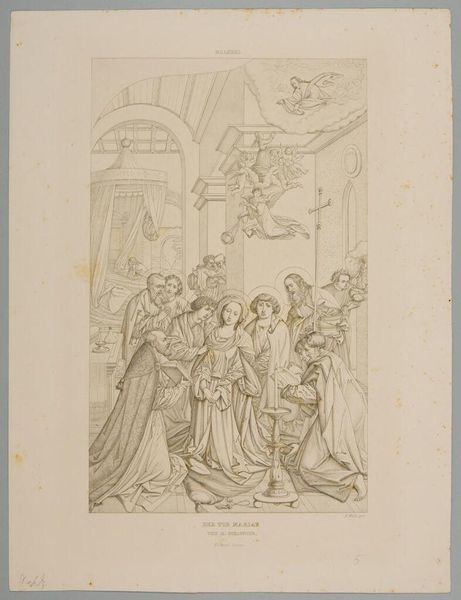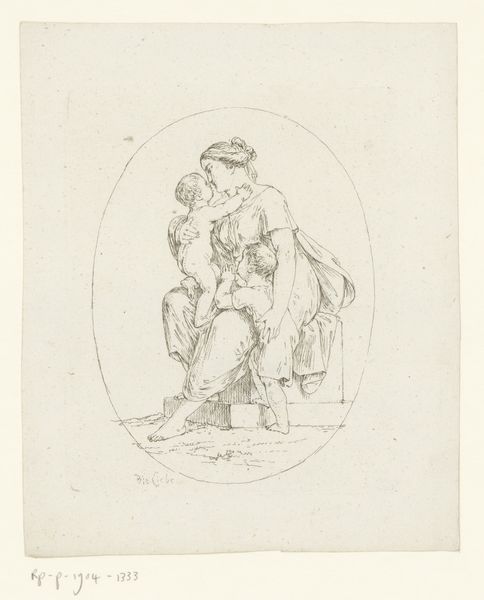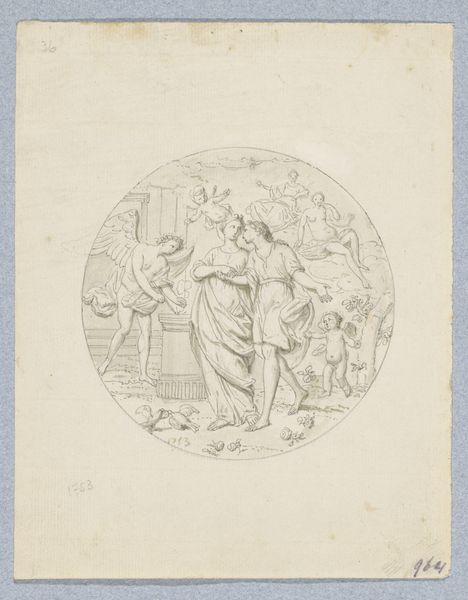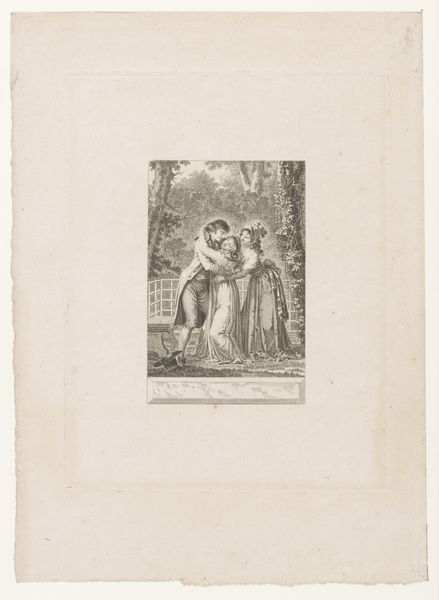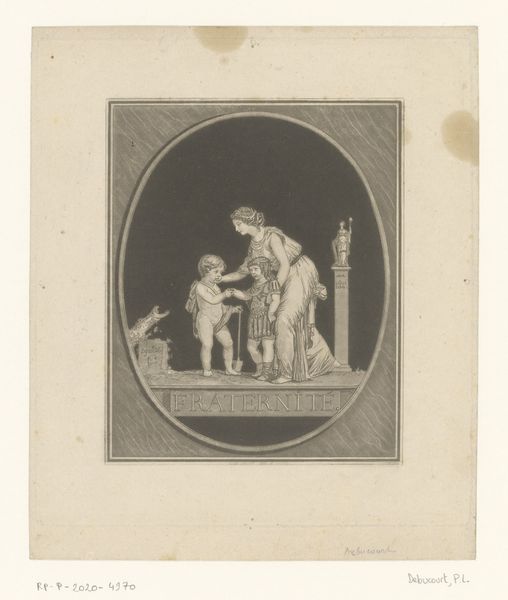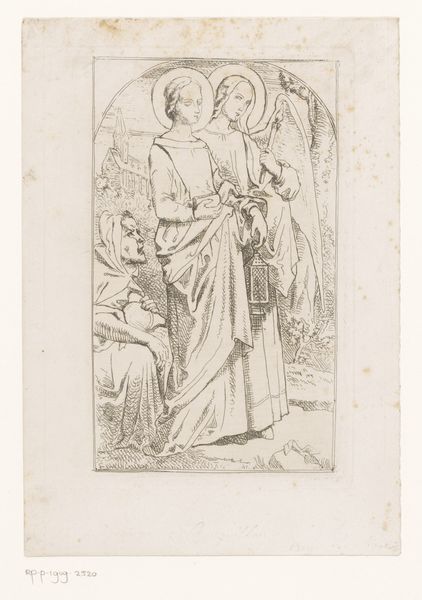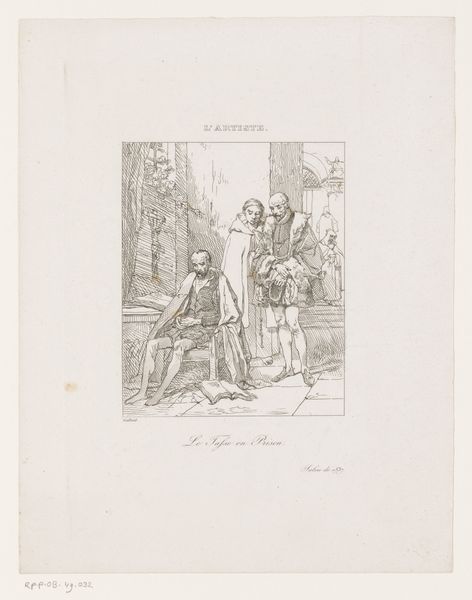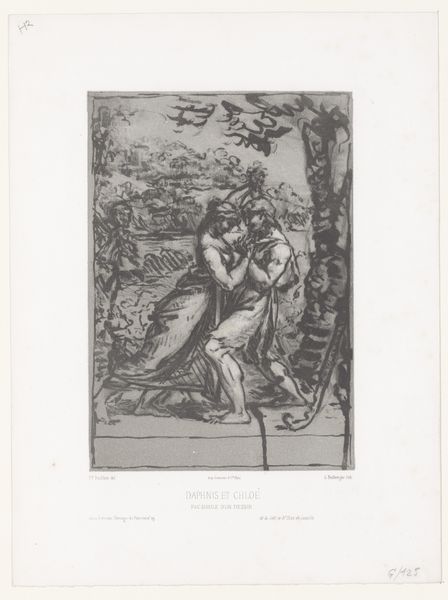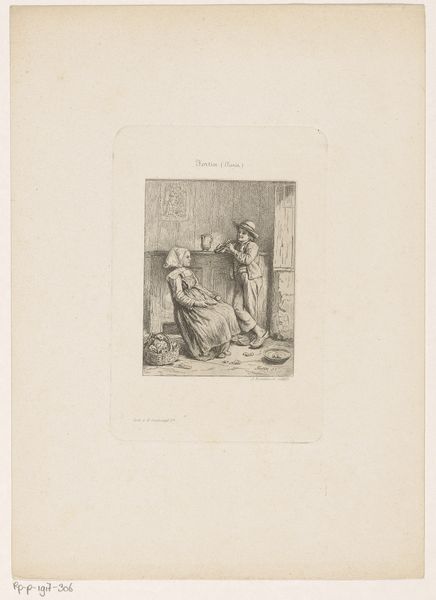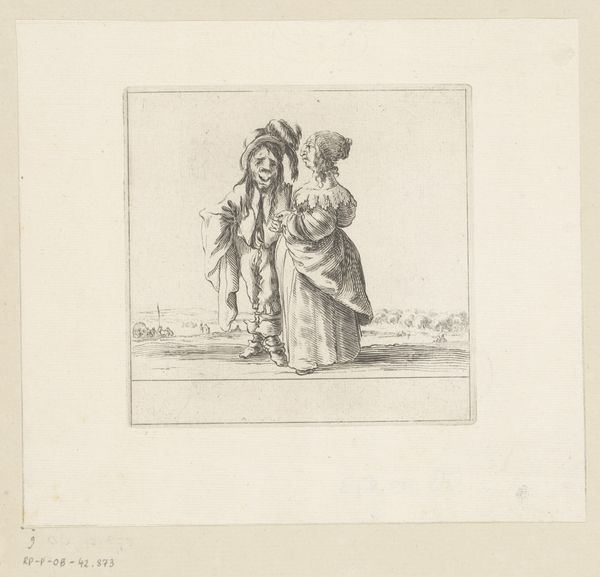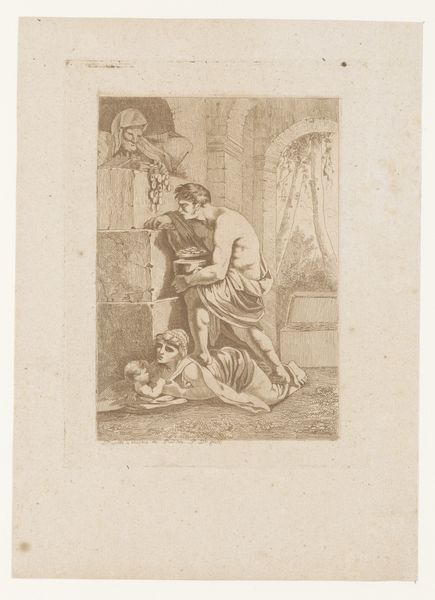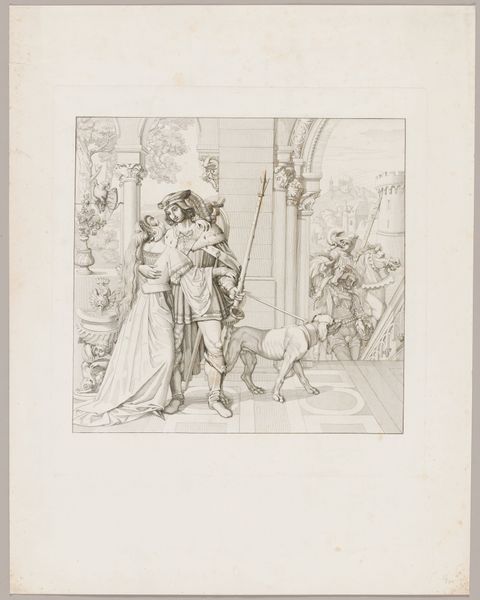
print, engraving
# print
#
figuration
#
ancient-mediterranean
#
history-painting
#
engraving
Dimensions: 150 mm (height) x 90 mm (width) (bladmaal)
J.V. Gertner made this print called “Summer,” part of a series called “The Four Seasons,” sometime in the mid-19th century. It is made from line engraving, a printmaking technique in which an image is incised into a metal plate, which is then inked and pressed onto paper. The linear quality of the print emphasizes the figures and the wheat field in the background. These elements become metaphors for labor and harvest. We see figures holding scythes, tools used for cutting grain, representing agricultural work and the cyclical nature of the seasons. The choice of line engraving as a medium is significant; it was a traditional method, requiring skill and precision. During the 19th century, it was gradually being replaced by industrial printing techniques. This print, therefore, reflects a moment of transition from handcraft to mass production. In appreciating Gertner’s print, consider how the materials and making processes are deeply connected to social issues of labor, the changing modes of production, and the enduring importance of human creativity. This invites us to reconsider the relationship between art and craft.
Comments
No comments
Be the first to comment and join the conversation on the ultimate creative platform.
